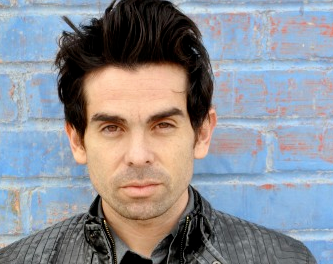"In the providence of God, the truths of the doctrines of grace were soon carried across the Atlantic by men searching for religious freedom. The Pilgrims were distinctly Calvinistic, as they brought with them and preached from their Geneva Bibles. The early Colonial leaders were staunchly Reformed. Those who founded the early states--men such as John Winthrop, Thomas Hooker, Roger Williams, Increase Mather, and Cotton Maher--were all Calvinistic. The first American colleges, Harvard and Yale, were Calvinistic, established to train Reformed ministers who would preach Reformed doctrine." -- Steven Lawson
I am glad the Lord has brought me back to my American roots! Happy Thanksgiving and thank the Lord for the Puritan Pilgrims!
















5 comments:
Actually, there are a miriad of texts that prove the Pilgrims were indeed from a Baptist colony in Europe. I too thank God for the country he has placed me in and that religious freedom is given to us. While I undoubtedly hold to many Reformation doctrines, I can't help but think that when it comes to ecclisiology I am of the Baptist mold. I have been studying this extensively over the past few months and have come to learn that many Reformers still held tightly to the Catholic church and still wanted some form of a union between church and state. They not only were hunted by the Catholics, but they themselves became the hunters of the Baptists. There is no refuting this as their own words have condemned them. In that sense I am thankful that the United States is not so much a Reformed country in an ecclisiological sense and that it truly affirms freedom of religion. True faith cannot be forced.
hey jer,
I think all Josh was referring to was that the pilgrims were reformed in their soteriology. Alot of churches these days refer to themselves as being "reformed" when speaking of their soteriology (calvinism), while everything else isn't reformed.
(i deleted my first entry because my grammar didn't make sense)
Always reforming...
I don't doubt that the Reformers or the Puritans errored in many ways, as have some Baptist brothers. Hopefully this quote wasn't taken as a defense of all things reformed or puritanical. I am simply glad that the doctrines of grace made it this way...and they happened, in God's Sovereignty, to be the ones who brought it here.
Considering where some of the Magesterial and later Reformers were at in history I can see why they thought there should be some union between state and church. It takes time (a lifetime) to fully conform to God's Word after years of being taught wrong. The Reformation started with the gospel and eventually would make it's way to other "ologies" in Scripture. I think many of them knew that they'd always be conforming to the Word of God because they were in error. There may be, but I am not aware of any modern-day reformers that believe in a church-state union. Could that be evidence that there is still some reforming going on? Perhaps. Obviously we want to conform to Scripture, not Reformed or Baptist distinctives...unless they are of the pure Word of God. The Doctrines of Grace, I am convinced, are a beacon of light in a dark and confused church. Thank God for them.
Hey Jeremy,
Joey hit it right on the head.
Also, you're right that the Reformers didn't want to break from the Catholic church. They wanted it to return to the truth...thus the word Reform. To be funny, they weren't the Abandoners, but the Reformers. That was their goal. Obviously we know that many were excommunicated.
I know that when we were in L.A. we wanted to "reform" our church, not bail out on it. We clung to it because we so desperately wanted to see Biblical change. That didn't make us wrong. It showed our love for those people and our love for God. I think you could say the same for the Reformers that did not want to break from the Catholic church.
I cannot defend any church-state desires they may have sought after.
Lastly, the Reformation was never intended to be a "page" in history, but rather an on-going thing until Christ came again. Hence the famous phrase,
Ecclesia Reformata, Semper Reformanda:
The church reformed and always to be reformed
AMEN! AMEN! AMEN! Loved your guys responses! I agree wholeheartedly. I'm so glad we could open up this "dialogue"! LOL!!!!!!! But seriously, I am in total agreement. It is fascinating to study church history and learn from the flaws and contributions of different people and movements. It only goes to show that no one and no movement is greater than the Word of God which endures forever and stands alone in power and conviction!
Post a Comment